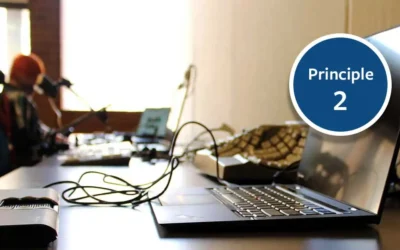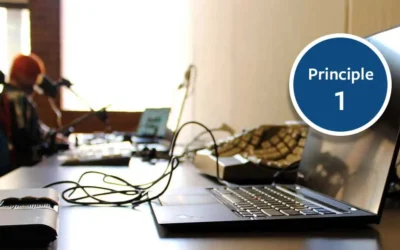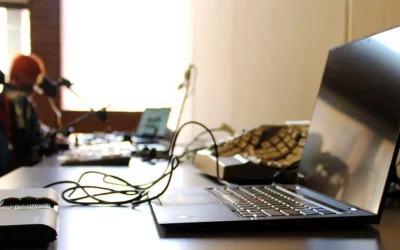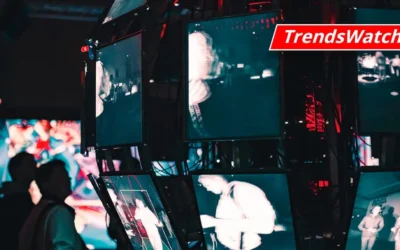How COVID Has Changed Museum Digital Projects Forever

Rachael Cristine Woody
This post is a continuation from last week’s The Difference Between Museum Digital Programs and Projects. Now that we’ve differentiated digital projects from digital programs, we can analyze how current events and, specifically, how COVID-19 has impacted how we prioritize and fund museum digital projects.
It’s a Digital (Re)Awakening
Elizabeth Merritt refers to this change in how museums are approaching digital projects as a “digital awakening” in the Center for the Future of Museums TrendsWatch 2021 report. And if you’ve read my response post TrendsWatch 2021: Digital Awakening, then you know I’ve reframed it slightly as a “Digital Re-Awakening”, because museum professionals were already integrating and innovating on digital tools with collections. Digital isn’t new to us, and down-playing its role in everyday museum functions prior to COVID-19 doesn’t help our case. The message needs to be:
Digital has been and continues to be a critically important function of a museum’s mission to provide access to collections and serve its community.
Digital Projects and the COVID Shift
In order to analyze how COVID-19 has shifted the way we prioritize and fund museum digital projects we need to first outline the reality of museum digital projects prior to the global pandemic.
- Pre-COVID, museum digital projects were:
- See as optional, an add-on, or added value.
- Not a top priority for funding or attention, especially when compared to physical exhibits and events.
- Not a robustly supported activity as measured by the percentage of the operating budget received, the amount of FTE dedicated, etc.
- With the onset and duration of COVID-19, museum digital projects transitioned to:
- Absolutely and urgently required because it was the only way to provide access to collections and collections content.
- The highest of priorities because it was the only avenue to quickly bring in funding (grants and applying for federal aid take time and are temporary stop-gaps).
- The only activity (during shut down) available for staff to participate in remotely; especially if their jobs were primarily to execute functions or activities in the physical museum space.
What About Post-COVID?
While we’re not past the reach of the pandemic yet, vaccines and effective safety protocols in Canada and the United States have allowed for the cautious reopening of many public gathering spaces—including museums. But it’s important to note: This is NOT a return to normal. The financial foundations of museums and the digital tools museum staff use to serve audiences should be forever altered. Why? Because during the pandemic we learned that:
- Museums can serve more audience members across the globe with online content and access. Providing online access to collections is more effective than limiting access to in-person attendance.
- Museum staff can work remotely on digital projects thanks to digitized assets and the ability to serve collections and related content online.
- Money can be brought in via online events and collection content; providing a pandemic-proof fundraising mechanism and diversifying museum revenue streams.
- Accessibility for our community members of varying mobility, neuro-needs, and seeing or hearing abilities are consistently better served by museums online thanks to the wide-spread adoption of online ADA tools.
The truth is, museums can better serve their audiences when they’re online than they can in-person. And while that can serve as a worthy challenge to improve the in-person visitor experience, it should also mean that digital project work continues to be prioritized and well-funded.
Next Week
Next week we’ll finish this miniseries with a post on The 4 Most Important Museum Digital Project Components.
Additional Reading
Museum Digital Project Specifications
Who are the Stakeholders in Museum Digital Projects?
What to Do When It’s Your First Museum Digitization Project
5 Prompts to Prioritize Museum Digitization Projects
Prioritize These Remote Museum Projects During Coronavirus—Part 1
Prioritize These Remote Museum Projects During Coronavirus—Part 2
How to Build Sustainability into Museum Digital Projects
Get Your TrendsWatch 2021 Report: Check out TrendsWatch 2021: Digital Awakening as part of the Center for the Future of Museum’s larger 2021 report. You can get your free e-copy here.

Rachael Cristine Woody
Expert Rachael Cristine Woody advises on museum strategies, collections management, and grant writing for a wide variety of clients. In addition to several titles published by Lucidea Press, Ms. Woody is a regular contributor to the Think Clearly blog. Register here for her upcoming webinar, “Museum Digital Project Fundamentals” on July 28, 2021. And learn about Lucidea’s Argus solution for powerful and innovative museum collections management.
Similar Posts
Museum Collections Online with Accessibility Principle 2: Operable
Compliance with WCAG Version 2.1 Principle 2: Operable
Museum Collections Online with Accessibility Principle 1: Perceivable
Compliance with WCAG Version 2.1 Principle 1: Perceivable, affecting information published from museum CMS to an online portal; expert guidance
Accessibility Standards for Museum Collections Online
A museum’s compliance with the ADA Title II 2024 update has benefits for its online content and for the museum’s community of users.
Museum TrendsWatch 2024: Digital Twins and Doom Loops & Combatting the Loneliness Crisis
Digital Twins is the construction of a digital surrogate for a person, place, or thing—one of several new concepts and trends in the museum sector.




Leave a Comment
Comments are reviewed and must adhere to our comments policy.
0 Comments